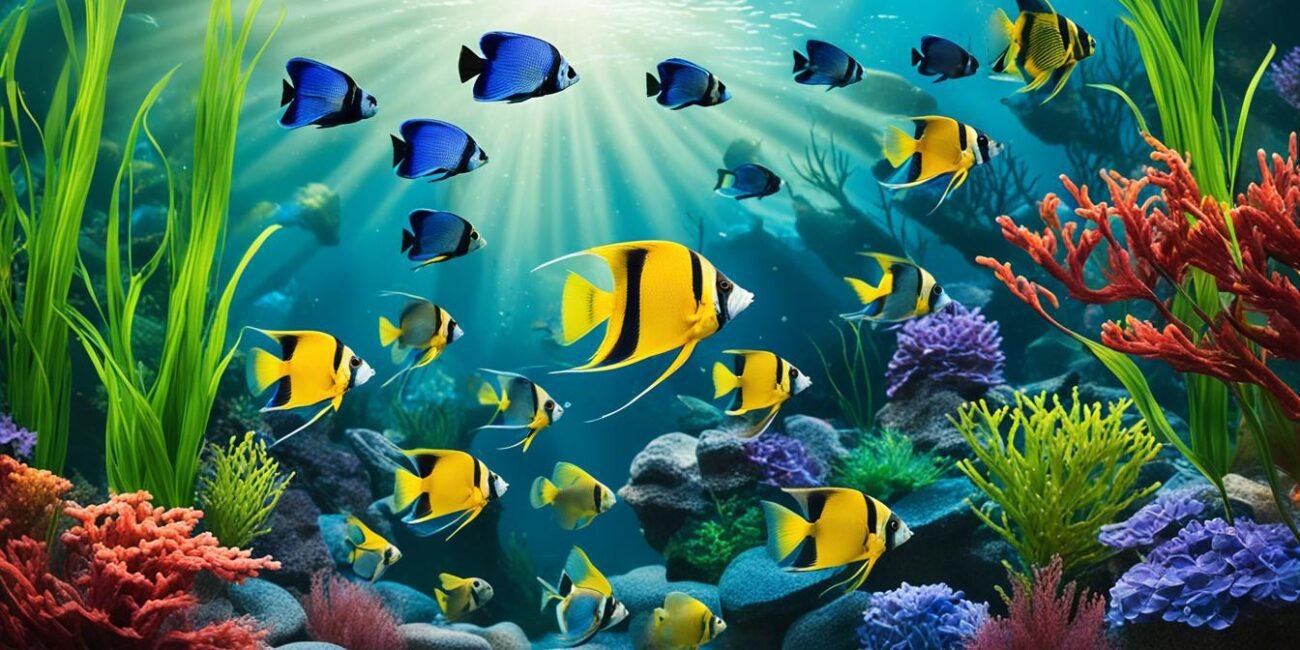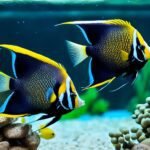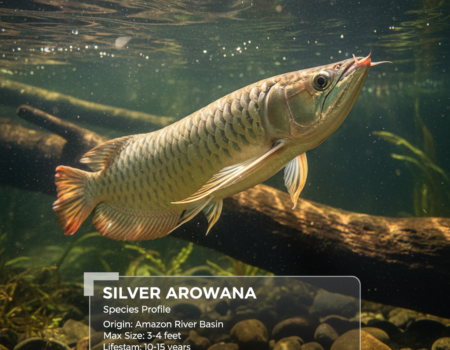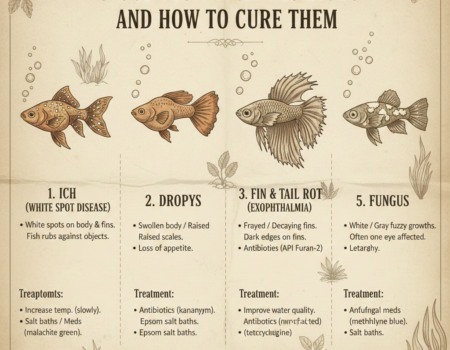Imagine a vibrant underwater paradise, filled with the graceful movements and dazzling colors of angelfish and guppies. It’s a sight that captures the imagination and fills the heart with joy. But as an avid fish enthusiast, I’ve learned that sometimes, beauty alone is not enough to ensure harmony in the aquarium.
Throughout my years of experience, I’ve come to realize the importance of considering the compatibility of fish species before introducing them to the same tank. And when it comes to angelfish and guppies, despite their individual charm, achieving a peaceful coexistence can be quite a challenge.
Key Takeaways:
- Guppies and angelfish have different temperaments and care requirements, making it difficult for them to coexist peacefully in the same aquarium.
- Angelfish are territorial and semi-aggressive, while guppies are docile, which can lead to aggression and stress in the tank.
- The two species also have different water parameter and diet preferences, adding further complexity to their compatibility.
- It is generally recommended to keep guppies and angelfish separate to avoid compatibility challenges and potential harm to the fish.
- There are plenty of other suitable tank mates for both guppies and angelfish, allowing for a harmonious community aquarium.
Compatibility of Guppies and Angelfish
Before adding any new fish to your aquarium, it’s important to consider their compatibility with existing species. In the case of guppies and angelfish, their different behaviors and temperaments can pose challenges in maintaining a harmonious tank environment.
Guppies are known for their peaceful and docile nature. They are ideal for community tanks and get along well with other non-aggressive species. Their small size and vibrant colors make them a popular choice for many aquarists.
On the other hand, angelfish are semi-aggressive and territorial in nature. They can exhibit aggressive behaviors, especially as they mature. Their tendency to establish territories and defend them can create conflict in the aquarium.
This difference in temperament can lead to aggression and stress in the tank when guppies and angelfish are kept together. The territorial nature of angelfish may cause them to view guppies as intruders, leading to chasing and potential fin nipping. This can result in damaged fins and stressed fish.
Furthermore, guppies and angelfish have distinct water parameter requirements. Guppies prefer slightly harder water with a pH between 7.0 and 7.2, while angelfish thrive in softer, more acidic water with a pH between 6.0 and 7.0. It’s important to strike a balance in order to meet the needs of both species.
In terms of diet, guppies are omnivorous and can thrive on a diet of high-quality flakes, pellets, and occasional live or frozen foods. Angelfish, on the other hand, are primarily carnivorous and require a varied diet consisting of flakes, pellets, and live or frozen foods such as bloodworms and brine shrimp.
Considering the territorial nature of angelfish, the differing water parameters, and diet preferences, it is generally recommended to keep guppies and angelfish in separate tanks to ensure their well-being and reduce potential conflicts.
Despite their incompatibility in the same aquarium, both guppies and angelfish can thrive and bring joy in their own respective setups.
Water Parameters for Guppies and Angelfish
When setting up an aquarium, it’s crucial to create an environment that meets the specific water parameters required by your fish. Guppies and angelfish, while differing in certain aspects, share some similarities when it comes to their preferred water conditions.
Guppies thrive in water temperatures between 72°F and 78°F. This range provides them with the optimal conditions for growth and reproduction. On the other hand, angelfish prefer slightly warmer temperatures, typically between 78°F and 84°F. It is important to find a balance that suits both species. Maintaining a consistent and appropriate temperature will ensure the overall well-being of your fish.
When it comes to pH levels, both guppies and angelfish can tolerate a neutral pH of around 7.0. This means that the water is neither acidic nor alkaline. However, it’s worth noting that guppies generally prefer slightly harder water. On the other hand, angelfish thrive in soft, acidic water. Regular monitoring of the pH levels is essential to ensure the health and vitality of your fish.
| Fish | Temperature Range (°F) | pH Level | Water Hardness |
|---|---|---|---|
| Guppies | 72°F – 78°F | 7.0 | Slightly Hard |
| Angelfish | 78°F – 84°F | 7.0 | Soft |
Water hardness, also known as general hardness or GH, refers to the concentration of minerals, particularly calcium and magnesium, in the water. While guppies can tolerate slightly harder water, angelfish prefer soft water conditions. It is important to find a balance that accommodates the needs of both species.
By ensuring that the water in your aquarium meets these parameters, you can provide a suitable and comfortable environment for both guppies and angelfish to thrive.
Behavior and Temperament of Guppies and Angelfish
When considering the compatibility of guppies and angelfish in the same aquarium, it’s essential to understand their behavior and temperament. Guppies, known for their peaceful nature, are well-suited for community tanks with other shoaling fish species. They are generally active swimmers who love to explore their aquatic environment.
On the other hand, angelfish display a semi-aggressive and territorial behavior, especially as they mature into adults. They may view smaller, peaceful fish like guppies as irritants and can exhibit aggressive behavior towards them. This territorial nature can disrupt the harmony of the tank and lead to stress and potential harm for the guppies.
It’s important to note that angelfish are omnivores and may perceive small guppies as potential prey. Their predatory instincts can pose a risk to the safety of guppies in the same aquarium. This predatory behavior further supports the recommendation to keep guppies and angelfish separate to ensure the well-being of both species.
To summarize:
- Guppies have a peaceful temperament suitable for community tanks.
- Angelfish display territorial and semi-aggressive behavior, especially as adults.
- Angelfish are omnivores and may view small guppies as potential prey.
Quote:
“While guppies are sociable and active, angelfish can be territorial and even view smaller tankmates as food. It’s best to avoid housing them together.” – Aquarium Expert
| Guppies | Angelfish |
|---|---|
| Peaceful temperament | Semi-aggressive and territorial |
| Enjoy exploring the tank | Potential prey for angelfish |
Compatibility Challenges of Guppies and Angelfish
The coexistence of guppies and angelfish poses several compatibility challenges due to their contrasting behaviors and temperaments. The aggression exhibited by angelfish can result in stress for both species, leading to weakened immune systems, increased disease outbreaks, and higher mortality rates. Consequently, it is generally advised to keep these fish separate to ensure their well-being and overall aquarium harmony.
Guppies, known for their peaceful nature, are susceptible to aggression from angelfish. The territorial behavior and predation instincts of angelfish can make guppies feel threatened, causing them unnecessary stress. This persistent stress can compromise their immune systems, making them more vulnerable to diseases and reducing their lifespan. Similarly, angelfish may also experience increased stress from the presence of guppies, especially if the tank lacks sufficient hiding spaces or territorial divisions.
“The aggression potential of angelfish can lead to stress and incompatibility within the aquarium, affecting both the guppies and angelfish.”
Moreover, the inherent predatory nature of angelfish poses a significant challenge to coexistence with guppies. As omnivores, angelfish may perceive small guppies as potential prey, leading to predation instances that result in the loss of guppy individuals or fry. This added danger not only disrupts the compatibility between guppies and angelfish but also introduces an imbalance in the ecosystem of the aquarium.
To maintain a harmonious and stress-free aquatic environment, it is recommended to carefully consider the compatibility challenges posed by guppies and angelfish. By keeping these species separate, aquarists can ensure the well-being of both fish and mitigate potential compatibility issues, including aggression, predation, stress, and disease outbreaks.
Mitigating Compatibility Issues
If you still want to attempt keeping guppies and angelfish together, there are some steps you can take to reduce compatibility issues:
- Use a larger tank: Increasing the available space in the tank can help mitigate aggression. Providing ample space for both species to establish their territory and swim freely can reduce stress and conflicts. A larger tank, preferably with a capacity of at least 40 gallons, is recommended to accommodate the needs of angelfish.
- Strategically-placed decorations: Creating territories within the tank can help minimize aggressive encounters. Use decorations like rocks, driftwood, and caves to provide hiding spots and visual barriers. This will help angelfish establish their territory and reduce the likelihood of aggressive behavior towards guppies.
- Ample hiding places and dense planting: Guppies are naturally small fish that prefer densely planted tanks. By incorporating live plants with dense foliage, you can create hiding places for guppies to escape potential aggression from angelfish. Plants also provide visual barriers and can help create a more natural and harmonious environment.
- Separate breeding tanks: Guppies are prolific breeders, and angelfish may see the small fry as food. To protect the guppy fry from being eaten, it is recommended to separate pregnant guppies into a separate breeding tank. This will give the fry a chance to grow and thrive without the risk of being preyed upon by angelfish.
By implementing these strategies, you can increase the chances of successful cohabitation between guppies and angelfish, mitigating compatibility issues and promoting a more harmonious environment in your aquarium.
Suitable Tank Mates for Guppies and Angelfish
While guppies and angelfish may not be compatible tank mates, there are plenty of other fish species that make good companions for them. Guppies get along well with other peaceful, community fish species such as tetras, catfish (like Corydoras), and gouramis. For angelfish, it’s best to choose larger fish species that are not easily bullied, such as tetras, barbs, and cichlids.
When creating a community tank, it’s important to consider the compatibility of the fish species. Choosing suitable tank mates ensures a harmonious environment and reduces the risk of aggression and stress among the fish. Here are some popular fish species that can coexist peacefully with guppies and angelfish:
| Fish Species | Type | Temperament | Size |
|---|---|---|---|
| Tetras | Community Fish | Peaceful | Varies (1-3 inches) |
| Corydoras Catfish | Bottom Dweller | Peaceful | Varies (2-3 inches) |
| Gouramis | Community Fish | Peaceful to Semi-aggressive | Varies (3-6 inches) |
| Barbs | Community Fish | Varies (some are peaceful, some are semi-aggressive) | Varies (1-6 inches) |
| Cichlids | Community Fish (specific species) | Varies (some are peaceful, some are semi-aggressive) | Varies (2-6+ inches) |
These fish species have similar care requirements and temperaments, making them suitable companions for guppies and angelfish in a community tank. It’s important to ensure that the tank size is appropriate for the selected fish species. Additionally, providing adequate hiding places, plants, and suitable water parameters will create a conducive environment for all the fish.
Having a variety of fish species in your aquarium adds color and interest to the tank. The combinations of different sizes, shapes, and colors create a visually appealing and dynamic environment. By carefully selecting suitable tank mates for guppies and angelfish, you can create a peaceful and thriving community tank.
Tank Size and Requirements
When it comes to housing angelfish and guppies together, it’s important to consider the tank size and requirements for both species. Angelfish, known for their majestic appearance, require a spacious environment due to their size and territorial behavior. A tank size of at least 40 gallons, and preferably larger, is recommended to accommodate their needs.
Guppies, on the other hand, are smaller in size and can thrive in smaller tanks. However, if you plan on keeping a community aquarium with both angelfish and guppies, it’s best to opt for larger tanks. This will provide ample swimming space for both species while reducing the chances of aggressive behavior.
Both angelfish and guppies have similar water parameter requirements, making it easier to maintain a suitable environment for them. They prefer a temperature range of 72°F to 78°F, with a neutral pH around 7.0. However, guppies prefer slightly harder water, while angelfish thrive in softer, slightly acidic water.
When it comes to feeding, guppies and angelfish have different preferences. Guppies are omnivores and require a varied diet that includes both flakes and live or frozen foods. Angelfish, on the other hand, are primarily carnivorous and prefer live or frozen foods such as brine shrimp or bloodworms. Providing a balanced diet for both species is essential to their overall health and well-being.
Lastly, it’s important to consider the breeding habits of guppies and angelfish. Guppies are known for their prolific breeding, and if left unchecked, they can quickly populate the tank. However, angelfish may view guppy fry as prey and may eat them. If you want to breed guppies, it’s best to separate them into a separate breeding tank to protect the fry.
Tank Size Recommendations:
| Species | Tank Size |
|---|---|
| Angelfish | At least 40 gallons, preferably larger |
| Guppies | Varies, but larger tanks are recommended for a community with angelfish |
Note: It’s always important to consider the specific needs of each species and provide them with the best possible environment for their overall well-being.
Image: Tank size is an essential consideration to ensure the well-being of your angelfish and guppies.
Conclusion
In conclusion, it is generally not recommended to keep angelfish and guppies together due to compatibility challenges. While it is possible to maintain them in the same tank with appropriate measures to reduce aggression, it requires a very large tank and careful monitoring.
There are plenty of other suitable tank mates for both angelfish and guppies that can create a harmonious community aquarium. For guppies, peaceful fish like tetras, catfish (such as Corydoras), and gouramis make excellent companions. As for angelfish, larger fish species like tetras, barbs, and cichlids can coexist without issues.
By selecting appropriate tank mates for each species, aquarists can ensure a peaceful and thriving environment for their angelfish and guppies. Ultimately, it is important to prioritize the well-being of the fish and create a habitat that caters to their specific needs and behaviors.
FAQ
Can guppies and angelfish coexist peacefully in the same aquarium?
It is generally not recommended to keep guppies and angelfish together in the same aquarium due to their different temperaments and care requirements.
What should I consider before adding guppies and angelfish to my aquarium?
It’s important to consider their compatibility with existing species, as guppies and angelfish have different behaviors and temperaments. They also have different water parameters and diet preferences.
What are the water parameter requirements for guppies and angelfish?
Guppies thrive in water temperatures between 72°F and 78°F, while angelfish prefer temperatures between 78°F and 84°F. Both species can tolerate a neutral pH of around 7.0, but guppies prefer slightly harder water, while angelfish thrive in soft, acidic water.
How do the behaviors and temperaments of guppies and angelfish differ?
Guppies are peaceful and suitable for community tanks, while angelfish are semi-aggressive and territorial, especially as adults. Angelfish can become aggressive towards smaller, peaceful fish like guppies, and they are omnivores, which may view small guppies as potential prey.
What are the compatibility challenges of keeping guppies and angelfish together?
The aggression and predation potential of angelfish can lead to stress for both the guppies and the angelfish. This stress weakens their immune systems, making them more prone to diseases and higher mortality rates.
How can I mitigate compatibility issues between guppies and angelfish?
Increasing tank space, using decorations to create territories for angelfish, providing hiding places and dense planting for guppies, and separating pregnant guppies into a separate breeding tank can help reduce aggression and predation.
What are suitable tank mates for guppies and angelfish?
Guppies get along well with other peaceful, community fish species like tetras, catfish (such as Corydoras), and gouramis. For angelfish, larger fish species that are not easily bullied, such as tetras, barbs, and cichlids, are recommended.
What are the tank size and requirements for guppies and angelfish?
Angelfish require a tank of at least 40 gallons, preferably larger, due to their size and territorial behavior. Guppies can thrive in smaller tanks, but larger tanks are recommended if you plan to keep a community with angelfish. Both species have similar water parameter requirements but have different feeding preferences, and guppies are prolific breeders, but angelfish may prey on guppy fry.
What is the conclusion regarding the compatibility of guppies and angelfish?
While it is possible to keep guppies and angelfish together in a very large tank with appropriate measures to reduce aggression, it is generally not recommended due to compatibility challenges. There are plenty of other suitable tank mates for each species, allowing for a harmonious community aquarium.










No Comment! Be the first one.